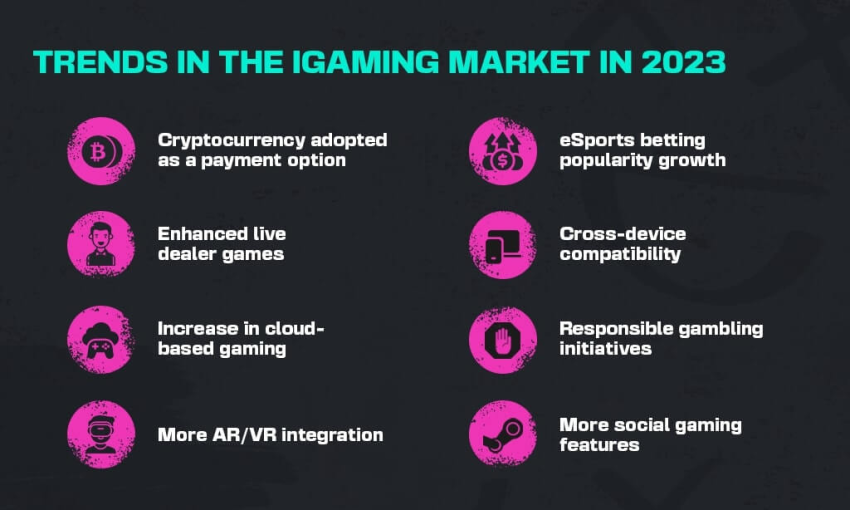In 2023, the regulations governing the iGaming industry have taken center stage, dramatically influencing how operators conduct business within the increasingly competitive landscape. As digital gambling continues to blossom, various online gaming regulations have emerged, emphasizing the importance of compliance amid evolving market dynamics. Stakeholders must stay abreast of gaming compliance updates, particularly as state-level sports betting laws gain traction across the United States. These developments reflect broader iGaming market trends, where global gaming regulations are becoming more cohesive, aiming to provide transparency and enhance player protection. Understanding these regulatory frameworks is not just a requirement, but a necessity for anyone aiming to navigate the iGaming sector successfully in the current climate.
The landscape of online gambling regulations in 2023 is marked by significant shifts that affect both established operators and new entrants alike. Key players within the gaming sphere must be vigilant in adapting to gaming compliance updates and local betting laws, particularly as they become more standardized across states. As the dynamics of the sector evolve, trends such as digital currency integration and enhanced consumer protection measures are increasingly important. Furthermore, the emphasis on robust regulatory frameworks, influenced by global standards, underscores the need for operators to align their practices with these new paradigms. Overall, the regulatory evolution in the online gaming arena is pivotal for fostering a safe and fair gambling environment.
The Impact of State-Level Sports Betting Laws on the iGaming Industry
State-level sports betting laws are becoming increasingly pivotal in shaping the landscape of the iGaming industry. With the recent legalization efforts across several states in the U.S., operators are presented with unprecedented opportunities to tap into new markets. Each state’s approach to regulation varies significantly, which necessitates that businesses conduct thorough due diligence before entering these markets. This diversity not only requires operators to be agile in their strategies but also stresses the need for comprehensive understanding and compliance with distinct state laws. For instance, while some states have embraced sports betting with open arms and simplified licensing processes, others maintain a more prohibitive approach, complicating market entry strategies for operators.
Moreover, the competition spurred by varying state regulations fosters innovation among operators. Companies must stay ahead by deploying cutting-edge technology for compliance and customer engagement, aligning with local laws while enhancing user experience. As states continue to fine-tune their legal frameworks around sports betting, the pressure on operators to innovate and comply with these shifting regulations can lead to greater industry standards. Therefore, understanding the nuances of state-level regulations is crucial for operators wishing to leverage market opportunities while mitigating risks associated with legal noncompliance.
Navigating the Complexities of Global Gaming Regulations in 2023
In 2023, navigating global gaming regulations presents a multifaceted challenge for iGaming operators. With jurisdictions worldwide revising their regulatory frameworks to address the rapid growth of online gaming, understanding the global regulatory landscape is essential. Operators not only face the challenge of complying with local laws but must also adapt to international standards that govern the industry. For example, the advent of new technologies and digital currencies requires regulators to create environments that foster innovation while protecting consumers. Failing to comply with these evolving regulations can result in substantial fines and reputational damage.
Furthermore, as highlighted by trends seen in Europe and emerging markets, regulatory developments can significantly influence local gaming environments. Countries are increasingly looking to each other for best practices and lessons learned, impacting how they structure their own regulations. Operators that proactively engage with global gaming compliance updates and harmonization efforts will likely find themselves better positioned to thrive in this competitive landscape. Understanding these dynamics, especially the push for responsible gaming measures and consumer protection, is critical for stakeholders in the 2023 iGaming market.
Frequently Asked Questions
What are the key updates in iGaming Industry Regulations 2023?
In 2023, the iGaming Industry Regulations have seen significant updates, including stricter compliance requirements and the legalization of sports betting in various states across the U.S. Notably, states like Florida and Georgia have implemented clearer laws to support sports betting operations. Additionally, there is a stronger focus on consumer protection and fraud prevention, with new technologies playing a vital role in compliance tracking.
How are emerging markets impacting online gaming regulations in 2023?
Emerging markets are significantly influencing online gaming regulations in 2023. These regions are facing unique regulatory challenges as they adapt to local laws and international compliance standards. Despite potential hurdles, the growth opportunities in these markets are substantial, prompting operators to prioritize responsible gaming and adherence to regulatory frameworks to stay competitive in the rapidly expanding iGaming sector.
| Key Areas of Regulation | Details and Developments |
|---|---|
| U.S. Sports Betting Regulations | States like Florida and Georgia are leading in implementing regulations that support sports betting operations. |
| Compliance and Fraud Prevention | Increased scrutiny over online platforms to ensure consumer protection and fair play. |
| Emerging Markets Challenges | Unique regulatory challenges that need to align with local laws and international standards. |
| Technological Innovations | AI and blockchain are enhancing compliance tracking and increasing transparency. |
| European Market Regulations | Unregulated sectors in countries like France are estimated to cost billions in revenue. |
| Leadership Changes in Regulatory Bodies | Personnel shifts can impact future regulatory strategy and governance. |
Summary
iGaming Industry Regulations 2023 represent an intricate web of changes and adaptations necessary for survival in an increasingly competitive environment. The pressure to comply with new regulations while pursuing growth in both established and emerging markets confronts operators with crucial challenges. As technology advances and the market evolves, those who fail to adhere to these regulations face significant risks, both financially and reputationally. Therefore, investing in compliance and understanding the regulatory landscape is not just advisable, it is essential for any stakeholder in the iGaming industry. The future will favor those who not only comply but also innovate within the confines of regulation.
